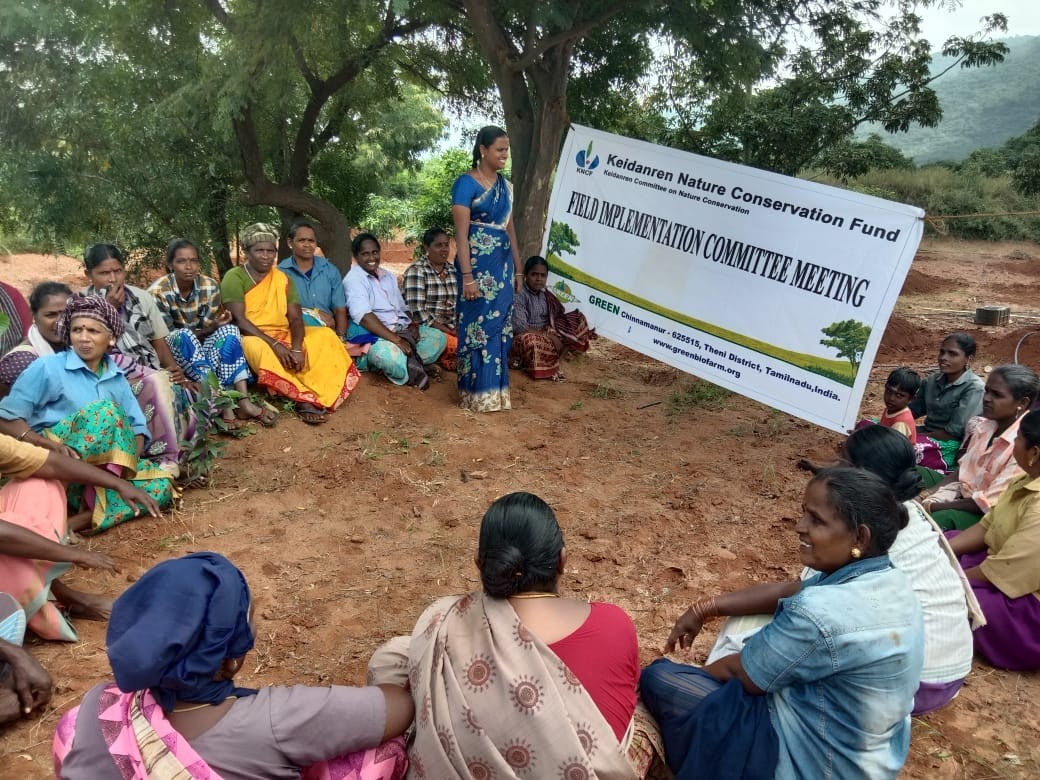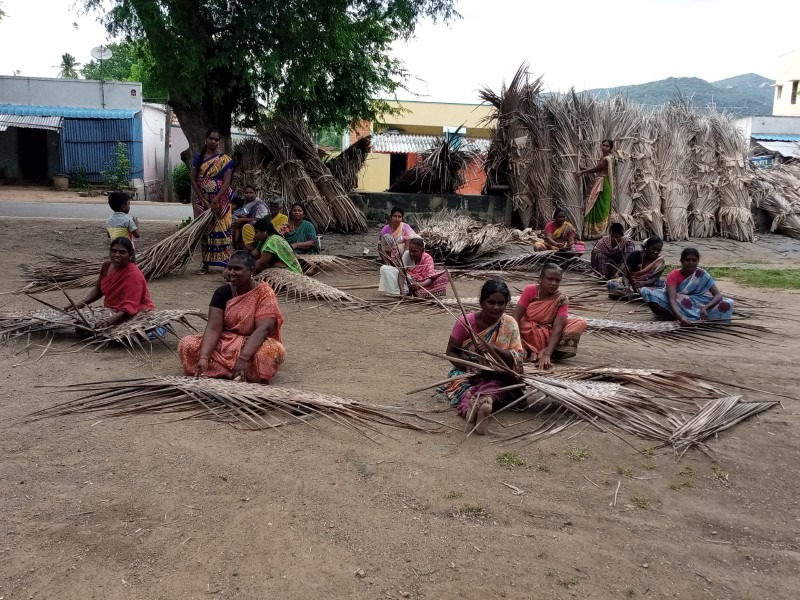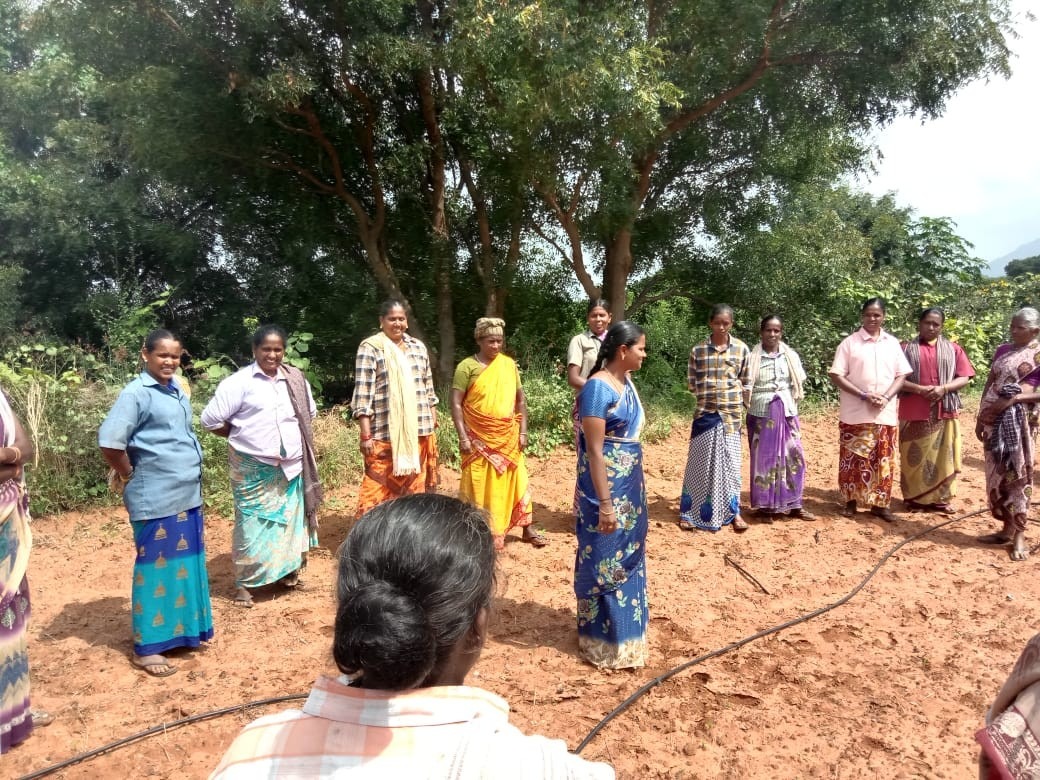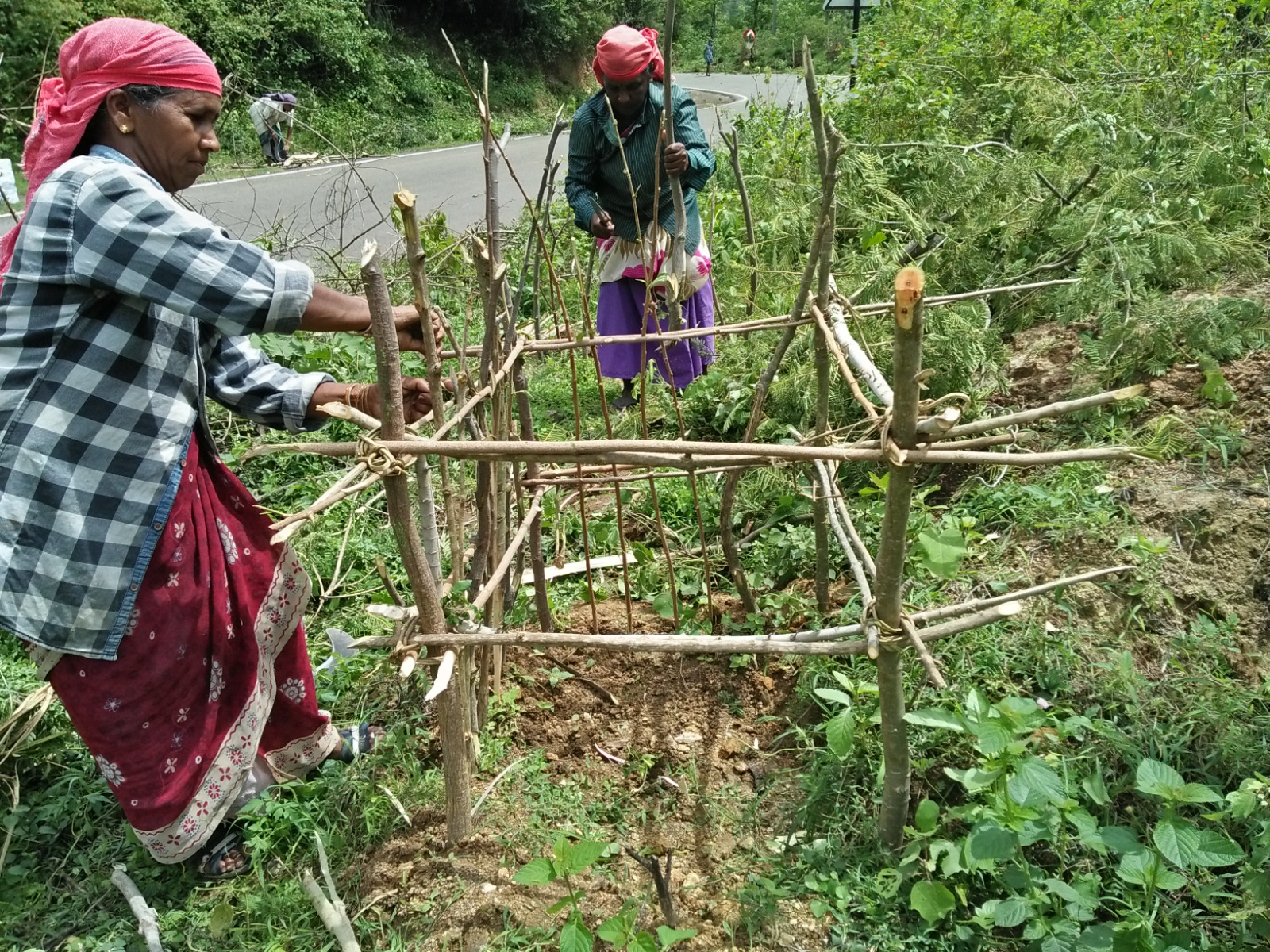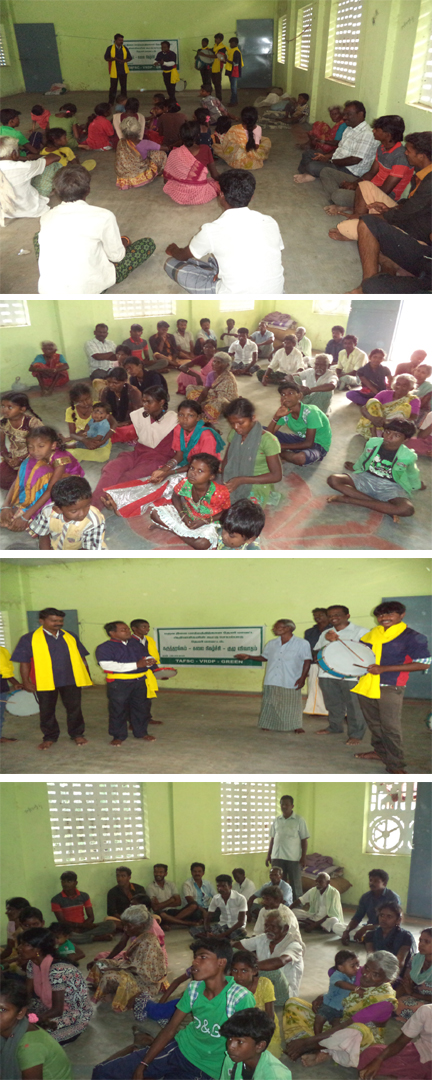The Kurangani, Varusanadu, Paliyangudi and Megamalai tribal communities in Theni district are mainly engaged in agriculture, herbal medicine and collection, honey collection, forest seeds, animal husbandry and handicrafts. Many tribes are also involved in forest product collection, needle moss sale and small scale industries. There are no specific sources of income.
Some tribes practice aromatic farming, ranging from settled agriculture to shifting cultivation (also known as "jam" or "slash and burn").
Historically, hunting, needle moss sale and forest product collection have been important livelihoods for survival. Some tribes are nomadic or semi-nomadic, herding cattle, sheep or other livestock. Tribal women are major sources of income through handicrafts such as mat weaving, bamboo figurines and flower garlands.
Tribals in the forest areas collect various forest products like fruits, nuts, honey and medicinal plants for consumption and sale. Land tenure and access to natural resources are also important for the livelihood of the tribals. Government efforts have played a role in supporting the economic development of the tribals through various schemes. But they are looking for guidance in creating organized markets and adding value to the tribal products. In line with their demands, the following measures have been taken by GREEN:
The long-term well-being of the tribals has been ensured by balancing economic development activities.
The Aboriginals
The tribal community in India, consisting of 100 million, are the aboriginals. They are the indigenous people who are also called as the traditional forest communities. They guard the biodiversity and cultures in forest lands. By birth, they have the bio-cultural rights to protect the lands, water bodies and natural resources as per their own culture and traditions. These rights are already recognised by international environmental laws, including UN agreements and declarations.
Fifth and Sixth Schedules
The Constitution of India has two schedules, viz., Fifth and Sixth Schedules exclusively for tribal people living in India. It calls some areas of tribal people as scheduled areas under Fifth Schedule and tribal dominated areas in four states viz. Assam, Meghalaya, Tripura and Mizoram as tribal areas. The Union Government has more powers in respect of administration of scheduled areas and whereas the tribal areas have special provisions for the administration under 6th Schedule.
The Fifth Schedule emphasises the creation of Tribal Advisory Council. The Sixth Schedule provides for District Councils and Regional Councils with certain legislative and judicial powers. The key objective of the Fifth Schedule is to provide protection to the tribal community living in Scheduled Areas from alienation of their lands and natural resources to non-tribal communities.
PESA/Panchayat Act
The Provisions of the Panchayats (Extension to Scheduled Areas) Act, 1996 or PESA is the most important piece of legislation for the tribal areas of India ensuring self governance through traditional Gram Sabhas to provide tribal welfare and accountability for tribal people living in the Scheduled Areas. Overwhelming majority of tribal population of India lives in nine States that come under Fifth Schedule of Indian Constitution.
Since independence, unfortunately, PESA or Panchayat Act under Fifth Schedule has never been applied. It has remained only on paper. The proper implementation of PESA would not only empower the tribal community through self governance, but would also deal a severe blow to the backwardness of the Adivasis. Sadly, the exploitation of these most exploited people of India goes on because the rich and the powerful cannot give up their parochial mindset, or stay away from the natural resources and land of the indigenous people.
Role of GREEN
GREEN aims to improve and strengthen the realisation of bio-cultural rights and sustainable forest management capabilities of the indigenous and other forest communities. GREEN also aims at promoting community participation in decision-making processes.
Hence, with the active participation and support of Siemenpuu Foundation, Finland, GREEN involved in creating awareness on Fifth Schedule among tribal community residing in the settlements of Western Ghats. Moreover, as a short-term measure and also as part of Fifth Schedule, GREEN initiated steps to collect and market forest produce collectively and directly by tribal community members without involving any intermediaries.
Tribal Federation
GREEN strengthened the Tribal Federation functioning in the tribal area. The key objectives of the Federation are:
To increase the membership; To organise campaign activities; To strengthen infrastructure facilities; To provide safe drinking water; To fix reasonable prices for forest produce (like herbal, seeds, and other non-timber products) collected by the Tribal people; and, To mainstream into social markets with assured income
Campaign Activities
GREEN organised various campaigns in tribal settlements, including in Kurangani village. The major thrusts of our campaign are:
Conducting campaigns on enforcing 5th Schedule in triball areas; Promote awareness on Land and Forest Rights; Awareness on climate change and using alternative energy sources; Promotion of tree plantation activities; and, Low carbon farming activities.
GREEN organized campaigns in ten tribal villages and hamlets. The campaigns included exhibition of posters, singing and playing awareness-based songs and games with active participation of tribal community members. We also facilitated getting welfare programs like Old Age Pension, Widows Pension, and Special Cards etc., from the concerned departments. We also created awareness on the impact of open defecation, need for closed latrines, importance of sanitation, using boiled water for drinking purposes and personal hygiene specifically among tribal adolescent girls and boys.
